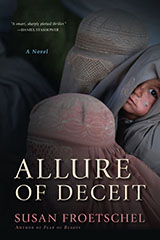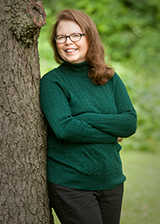Limits to Research
By Susan Froetschel
As a storyteller, I’ve become wary of engaging in excessive research.
Readers hear about the themes of my novels set in Afghanistan – women’s rights, illiteracy, charitable giving, provincial reconstruction, religious extremism – and immediately assume that I have devoted long hours to library and internet research. Certainly, after an idea for a novel pops into my head, I immerse myself in reading, observing, and exploring.
Much of my background reading is intended to confirm my passion for the topic and the willingness to spend the next 12 months or so drafting a story. I would estimate that only about a fifth of such notes and details make it to the final manuscript. I read news accounts from the country and examine photographs of villages, people, homes, tools and fields – not just online, but in old library books from decades ago, because years of memories and history, accomplishments and disruptions, have shaped these characters. Imagination reigns as I gather notes to prepare tables on my set of characters, some of whom do not make it to the manuscript.
 I also study human nature, and as I read, I hunt for details that can contribute to relationships and conflicts. The stories of my characters are also woven with my memories: The exhilaration of my mother reading aloud, transforming a nightly fairy tale into heart-wrenching moments. The hints that my brother, sister and I might be a burden after her death. Summers spent on an uncle’s farm, running with cousins through fields and patches of woods. Sessions with students, adults and younger, who confided about their struggles to read. The confusion after a long wait in a clinic with a friend distraught over a pregnancy, and sensing a change of heart. Arguments with my son and fears for his safety as he set off on more than one ill-considered adventure.
I also study human nature, and as I read, I hunt for details that can contribute to relationships and conflicts. The stories of my characters are also woven with my memories: The exhilaration of my mother reading aloud, transforming a nightly fairy tale into heart-wrenching moments. The hints that my brother, sister and I might be a burden after her death. Summers spent on an uncle’s farm, running with cousins through fields and patches of woods. Sessions with students, adults and younger, who confided about their struggles to read. The confusion after a long wait in a clinic with a friend distraught over a pregnancy, and sensing a change of heart. Arguments with my son and fears for his safety as he set off on more than one ill-considered adventure.
My research does not aim to provide a travelogue on Afghanistan, but rather prompt an examination of the comforts and opportunities in my country. How hard is it to maintain a garden without the easy flow of tap water? What is it like to cook a big meal over a wood fire? What does a family do in a home with no electricity or lights on a long winter night? What kind of girl would I have been without the ability to read? What secrets would I keep from my husband and family if I had to fear not sharing their religious beliefs?
My story is set in a fictional village. The characters are mostly illiterate; few have traveled far from home, and they resist the outside forces of change. As a writer, I respect these constraints and the perspectives that revolve around routines, control, secrecy and a lack of knowledge about the world at large let alone the specific policies of their own country. As a storyteller, I must strip away assumptions and imagine villagers’ conversations with their foreign visitors who may know more facts about Afghanistan but not the village’s many layers of feelings and relationships
Research confirms my passion for creating a story in a new setting with people who have endured so much hardship in recent decades. The research contributes to the characters’ motivations and helps satisfy my own curiosity about why children with minimal education mature so rapidly into adult roles, what kind of conflicts should be ignored and which demand a firm response, and how women might resist the bullying of extremists.
And once the story is down, in print, I rely on research skills, literally fact-checking the book’s details.
Don’t get me wrong, I relish research. The discovery process is more fun than work and does not interfere with the story I yearn to tell. Instead, imagination soars as I monitor my feelings while uncovering each new bit of information.
Susan Froetschel is the author of five mystery novels, including Allure of Deceit, set in Afghanistan and published in February by Seventh Street Books. The novel is about a remote village that is astounded to be regarded as recipients of charitable giving from groups based overseas. Her previous novel, Fear of Beauty, is about an Afghan woman desperate to learn how to read after the death of her oldest son. That book received the 2014 Youth Literature Award from the Middle East Outreach Council and was nominated for the 2014 Mary Higgins Clark Award. Since 2005, she has worked for YaleGlobal Online covering globalization defined as the interconnectedness of our world.
is the author of five mystery novels, including Allure of Deceit, set in Afghanistan and published in February by Seventh Street Books. The novel is about a remote village that is astounded to be regarded as recipients of charitable giving from groups based overseas. Her previous novel, Fear of Beauty, is about an Afghan woman desperate to learn how to read after the death of her oldest son. That book received the 2014 Youth Literature Award from the Middle East Outreach Council and was nominated for the 2014 Mary Higgins Clark Award. Since 2005, she has worked for YaleGlobal Online covering globalization defined as the interconnectedness of our world.
